Greta Lee: This has been so many years in the making. TV always takes a long time, but this, in particular, is a little different because of COVID. It really is atypical to have that many years between getting to revisit a story in a world and character. Was that something that you were thinking about?
Natasha Lyonne: Well, as you know, my main hobby is thinking about all the things, and I’m always just impressed that I get paid to do it. I sit and I think about all the permutations and iterations, and in general, the arrow of time, the block universe [the theory that past and present exists simultaneously]. I wonder about these questions all the time. What is it? What was meant to be? What else could have been in a show about parallel universes and multiverses and simulations? What other final forms could Russian Doll season two have taken, depending on a million different factors? Chloë [Sevigny] was eight months pregnant. Here’s my best friend, my sister and the whole world. The big event is that she’s pregnant, and, I’m in my tiny universe being like, “Don’t worry. I’ve written it into the season.”
GL: Is that what happened?
NL: Yes, Chloë was pregnant, which was like, on a human/sister level, such a huge event. My best friend’s first baby. That’s as close as I’m going to get to being an aunt in this life. Anyway, then all of a sudden here comes COVID, now it becomes a much greater event, the terror of the first-time mom giving birth during COVID.
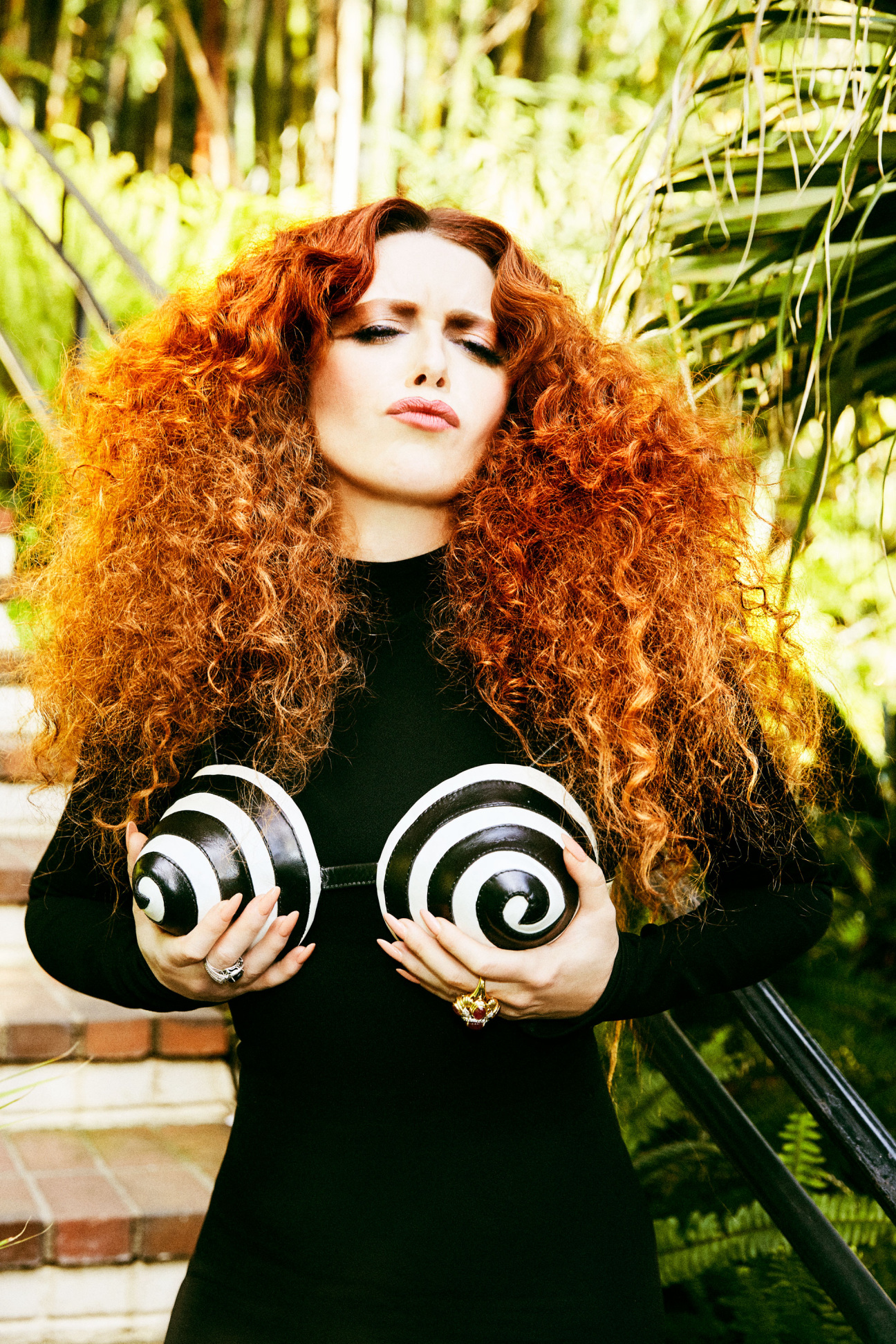
GL: Oh my God, I didn’t know that.
NL: And then it was the strange weirdness; we’re now all in some whole separate microcosm of obsession. We talked so much about figuring out things that were in the realm outside of our control, and we banded together. It felt to me very old-fashioned, almost like a ’70s movie, or an art project we were doing together because we would have these human tethers going where, collectively, we were all trying to reconcile the events of the world around us, which were so much greater than anything we had the personal power to control, which is so counterintuitive when running a physical production. Of course, on a very core level, what it meant was that the scripts kept shifting to make sense. Originally, Chloë’s part was crafted very lean because she was only going to be able to shoot with us for like three days. But by the time we were filming she had a 1-year-old and could shoot more. In other words, the world kept expand – ing and contracting, and almost revealing what it actually wanted to be. I remember with you, you were just like, “No, I’m going to Budapest.” I was like, “Really, you think it’s possible?”
GL: I knew. I was like, “I’ll see you there,” and you were like, “There’s no way.” I know it sounded like a pipe dream at certain points, but it’s wild. It was very meta in that way. I think of you as the premier thinker of our industry, Tash. I want to know specifically what was in your head aside from all of these different strings and the things that you kept having to calibrate and shift accordingly for. I remember us talking a Viktor Frankl book, and I remember talking about Stephen Hawking.
NL: In season two, we brought in The Order of Time, this book by Carlo Rovelli, an Italian theoretical physicist. The book is about the nature of time. It suggests that there’s essentially no evidence to support the idea that we’re experiencing time correctly—rather, it’s just subjectively experienced according to a set of agreed-upon principles. There’s a possibility that all moments are happening all the time. The first episode is called “Nowhen,” meaning, essentially, a time without time. I have no ambition to be a science authority but I would just say that, as a storyteller, I do have life experience in which I feel like I can intuitively grasp a lot of the concepts that are being proposed in books like Rovelli’s, and use them as jumping-off points for a spiritual science-fiction that meditates on deeper existential questions. I actually wanted to talk about Minor Feelings, if you’re open to it, because I think it’s so interesting that you, me and Michaela Coel—with her show I May Destroy You—are part of this new genre that’s happening. I’m not afraid to claim that space anymore. I’m definitely my own flavor. Meaning if you like it or you don’t, it’s none of my business at this point in my life, but it’s okay for me to acknowledge that I am my own fucking thing, and to say that I know for a fact you and Michaela Coel are too. We’re intellectuals, frankly, and I think that it’s interesting that we’re exploring trauma and the way that we want to go about that storytelling is so specific.
What I’m saying is that this idea of an arrow of time, or a block universe in which all moments are being experienced—yes, that’s an interesting scientific concept, but in practical application, what that means is that I can walk into a room and the air can take me back to my childhood, and I have the wherewithal and the maturity and the therapy to know that I might be experiencing this moment incorrectly. I am interested in how we experience time as this fluid thing, and yet we’re living in this world where there’s an expectation to keep pressing forward despite those feelings that I believe are somewhat universal.
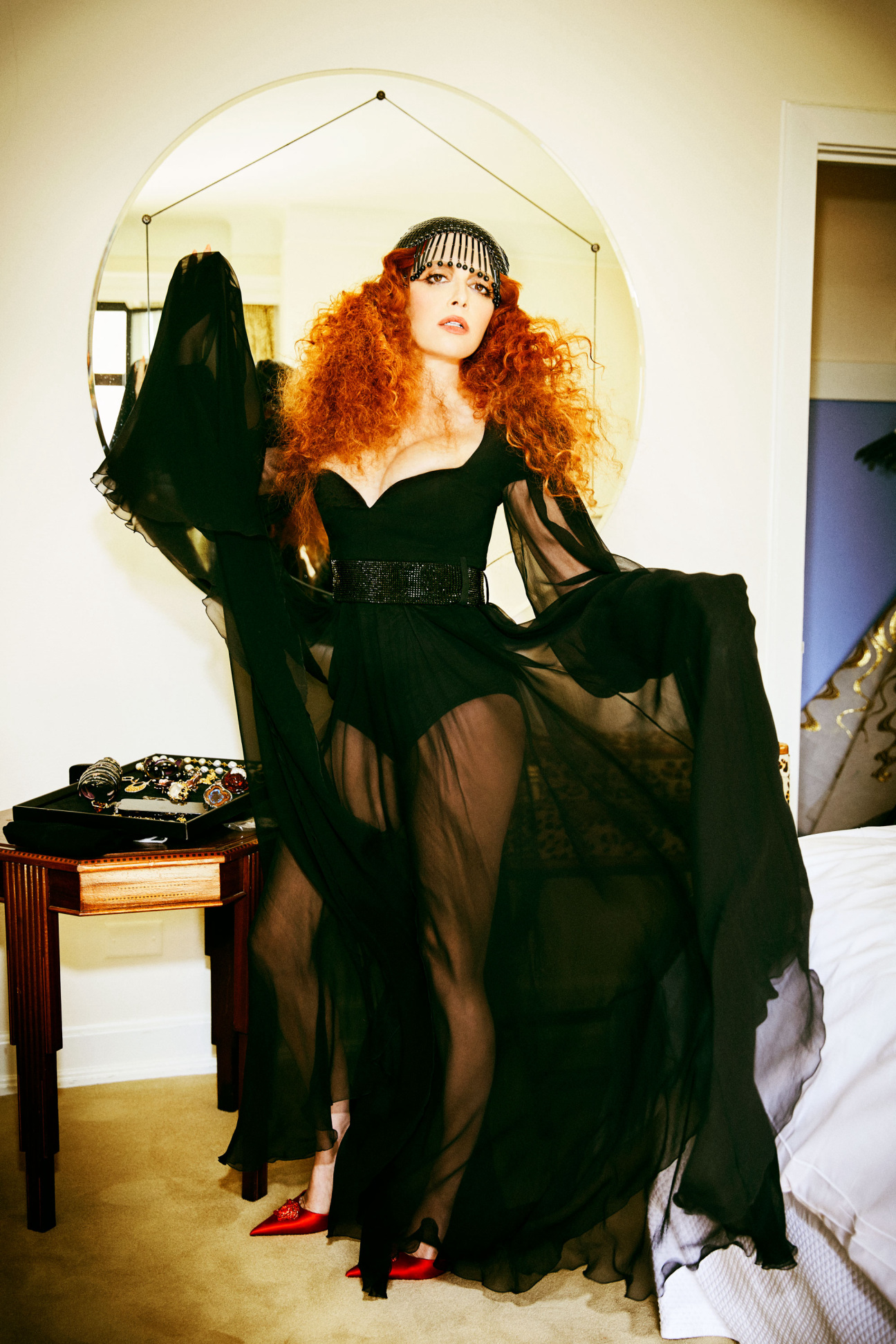
GL: One of the things I’m looking forward to is seeing how people respond to the scope of Russian Doll. There are parts of it that are like sci-fi, there are parts of it that are historical narrative, all the while you are tackling these very humanistic themes that are true to everyone. It’s incredible for me to watch a season and feel like, ‘Wow, Tasha is tackling identity.’ There are so many different ways for all of us, as different as we are, to investigate those questions: who are we, where do we come from? Why the fuck are we the way that we are? I love that with this season, you were able to think about time and space without being zeitgeisty. Your universe doesn’t feel small, it feels super expansive.
NL: My hope with Russian Doll is that with each season we’d make it to the smaller doll, we would get closer to the heart of the matter. It is a search for the truth. Season one is so much about mortality. The setup is that she’s having this real midlife crisis, she’s turning 40, and, obviously, the character borrows so much from Robert Altman’s The Long Goodbye, and this sort of shtick. Then [this season], it’s like, ok, I’ve stopped dying. I’ve figured out how to go from being a defiant nihilist who’s disconnected from finding human connection and a reason to live—but can I now actually make sense of my life?
GL: I remember the first time you were explaining the idea of Russian dolls. This idea that you are getting closer and closer. What’s the smallest doll for you?
NL: That is a big question. I always think about what it would feel like to be truly free, walking through life unencumbered by expectation or this sense of a life unlived because, inevitably, it is a collective experience that we’re in. We’ve set up all these tent poles and rules for what it means to have a meaningful life. Then we’re always beating ourselves up for falling short. As if it’s about winning and losing; my sense is that this whole idea is warped, and it’s the source of so much suffering.
But I don’t really know what the endgame is. I’m always amazed Netflix and Universal give me money to ask this team of brilliant women to try anyway. We just sit there and essentially think together and read all these books. I don’t know that we’re ever going to crack that littlest doll, but that struggle is at the heart of the question.
GL: This season, those women, you got Alice Silverman. Who else?
NL: It’s Alice Silverman from season one and [writer] Cirocco Dunlap from season one. [Producer] Regina Corrado, who’s incredible. Alison McDonald, who’s awesome. [Producer] Alice Ju, she’s just extraordinarily brilliant. It’s just ridiculous. She’s a philosophy major, so she just makes me so happy. She’s such a radical thinker and really gets it. [Producer] Zakiyyah Alexander, who’s awesome and now showrunning Grown-ish with Yara Shahidi.
Lizzie Rose, who is our writer’s assistant, is also one of Chloë’s best friends. It’s a radical group of women. Amy Poehler is, of course, a co-creator of the show, so she’s always weighing in, having these very long conversations. Lily Burns, who’s an EP on the show, always really gets in there with scripts and ideas, and is always bringing up string theory. [Actor and producer] Tami Sagher, [actor] Jocelyn Bioh and [writer] Flora Birnbaum are the ladies who didn’t participate in the season. Jocelyn, for example, who’s now just this wildly acclaimed playwright—her fiancé, Austin, is the doctor in the very first scene, who opens the door with, “Easy on the Oedipus, I just woke up.”
Paige [Gilbert] is the nurse that I get into it with in the first scene in the waiting room. She was one of the stars of Jocelyn’s play School Girls. It stays pretty tight-knit, this core group. Remember, I would be calling you to just ask you your opinion about the ideas in the show, not only your character.
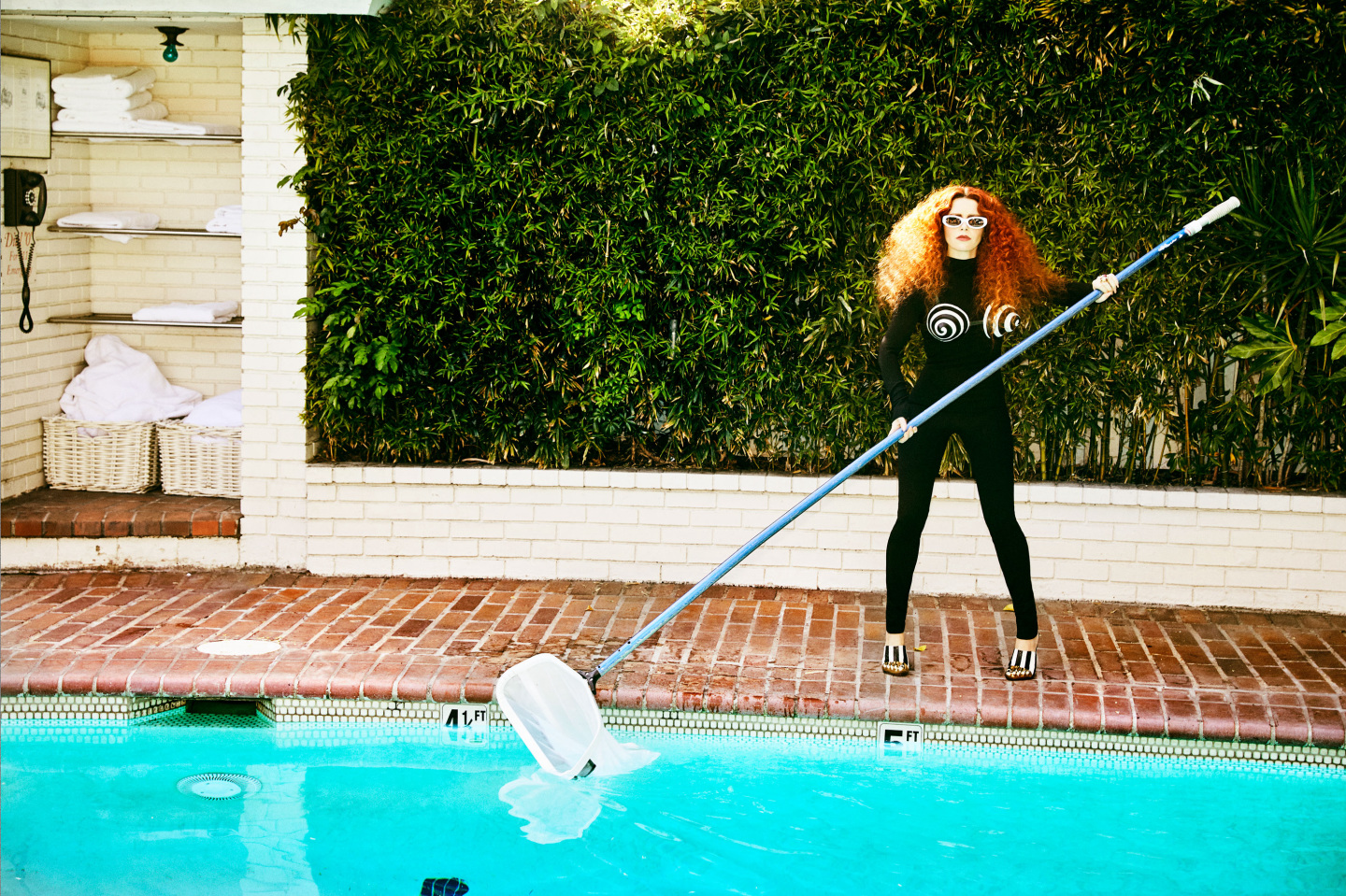
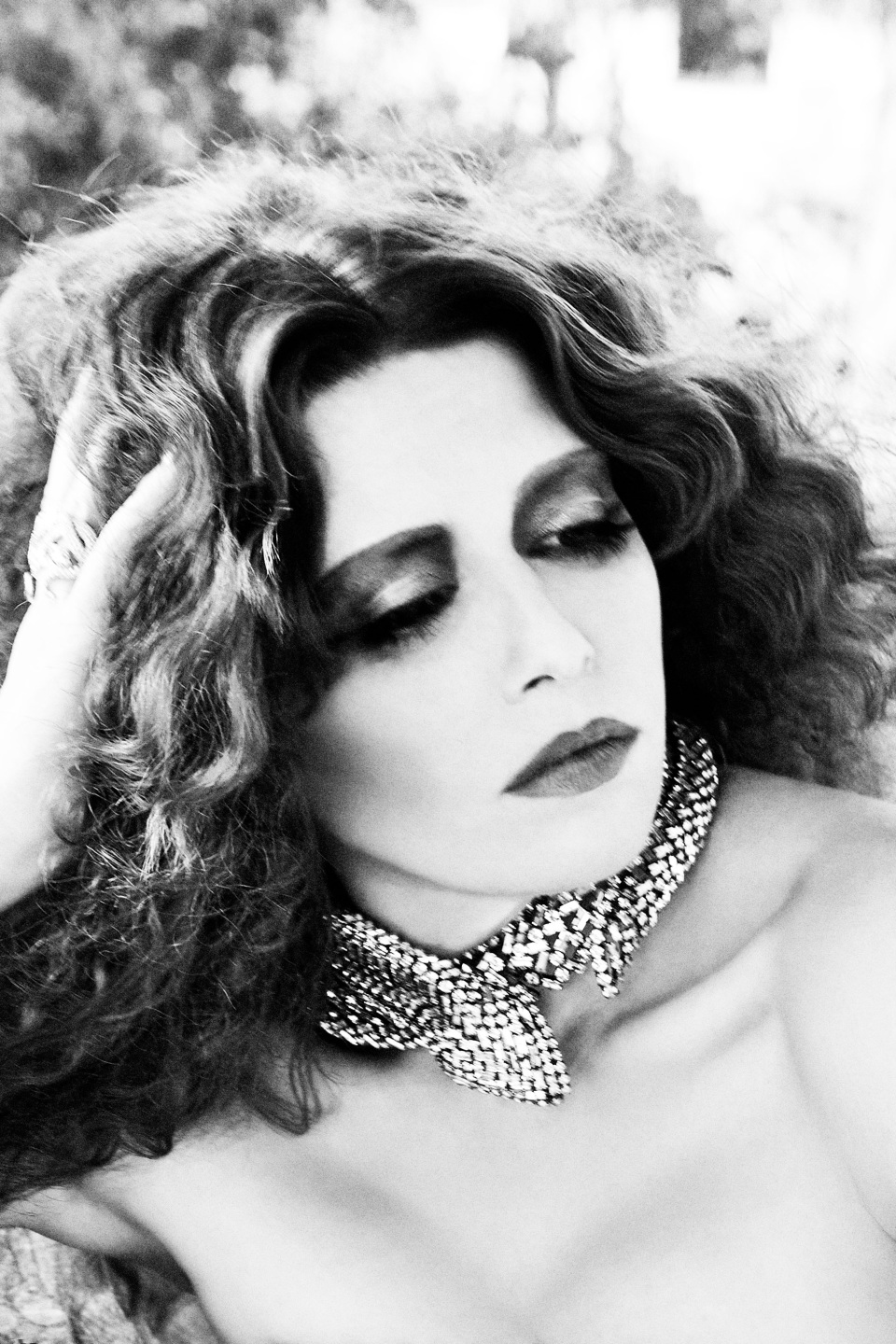
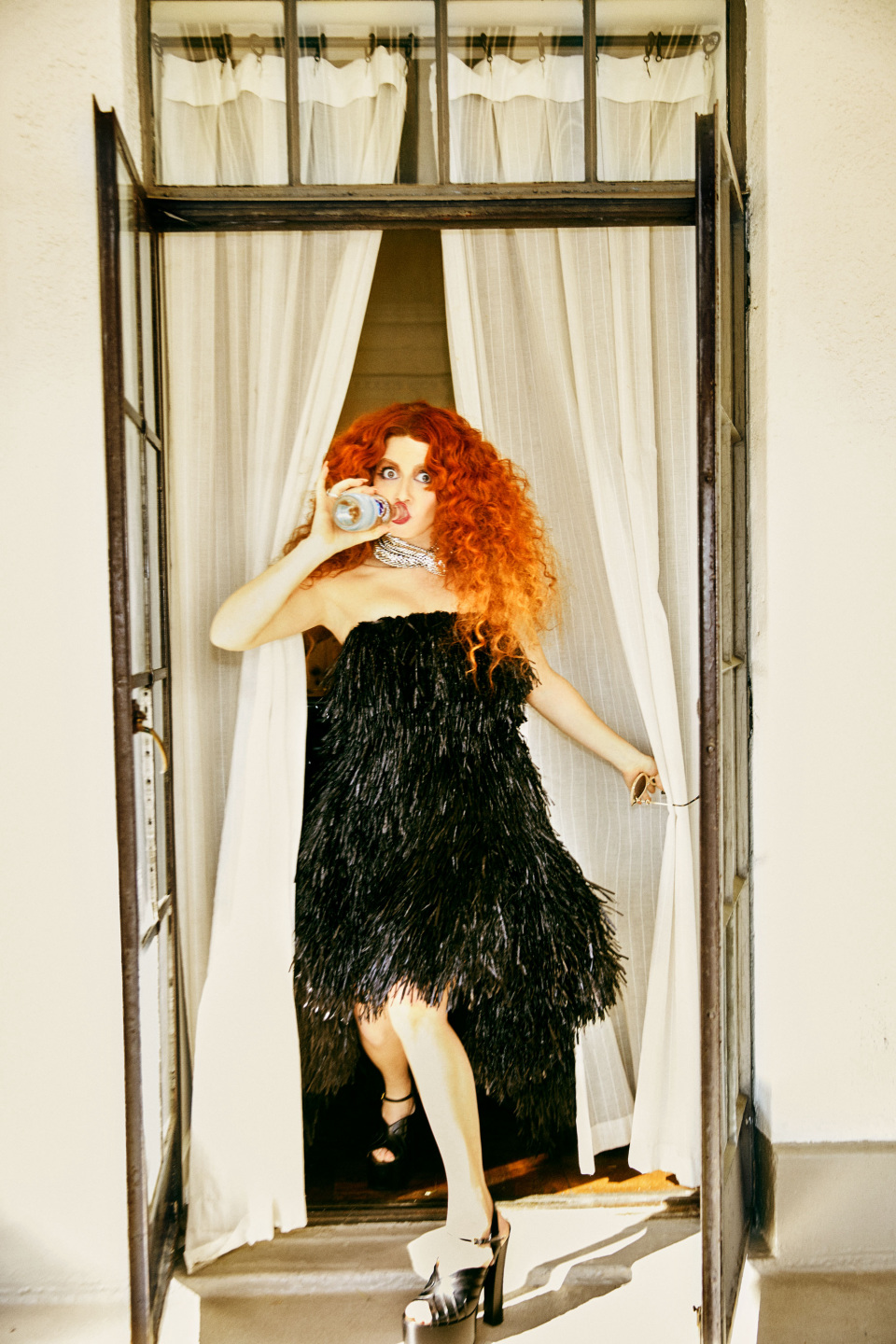
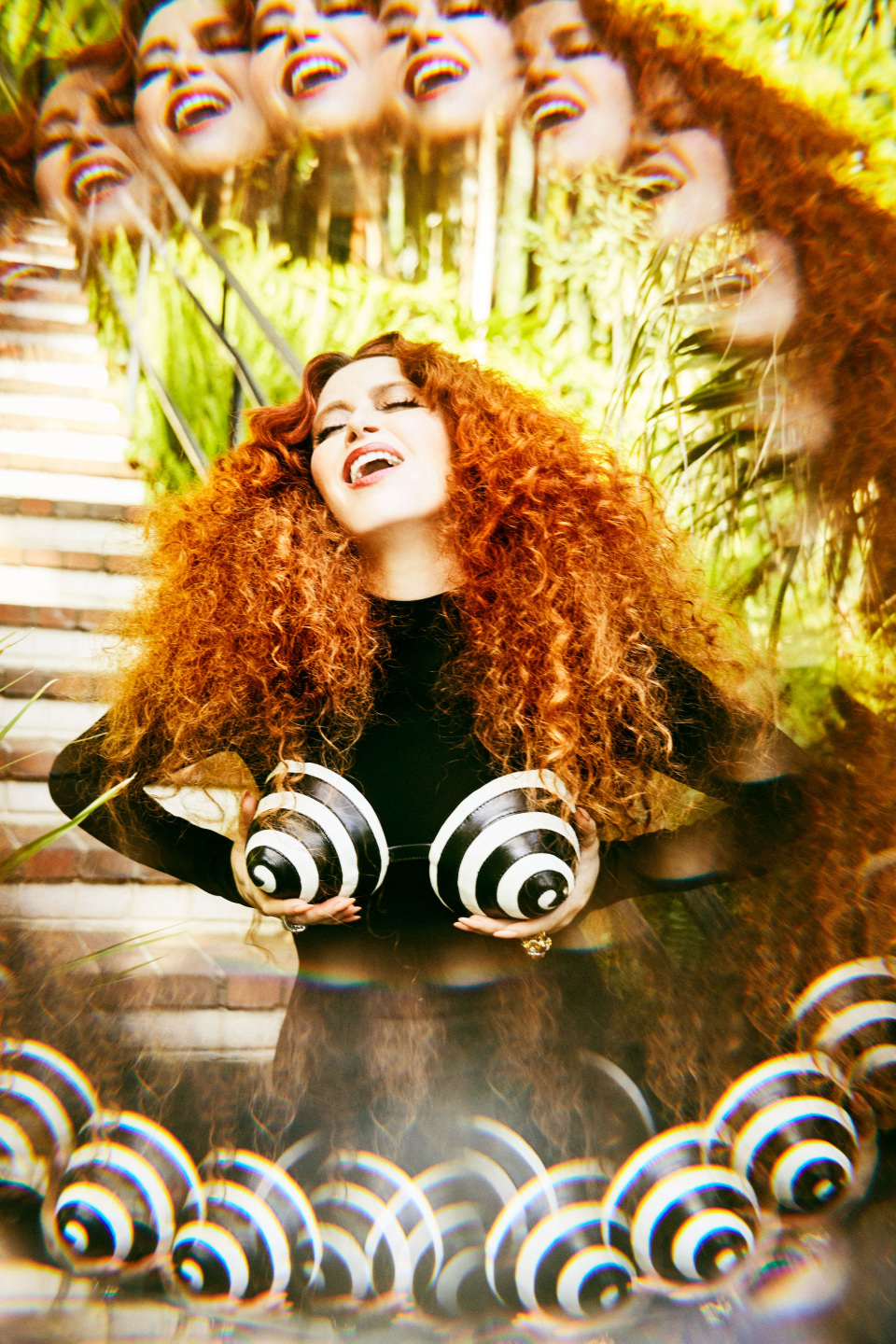
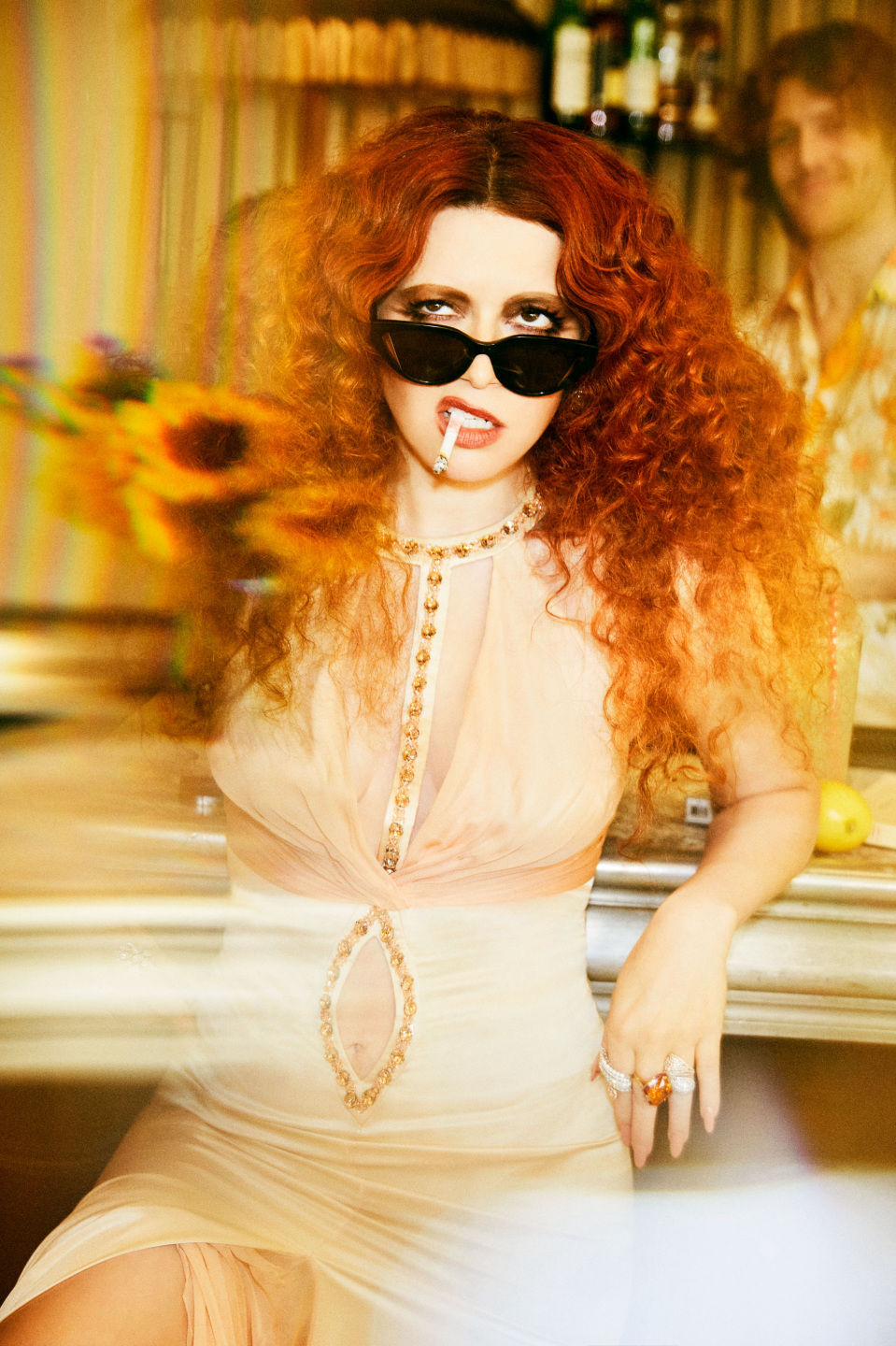
GL: I remember some of those.
NL: I am almost spooked to make something without you, directorially. I’m always just like, “Greta, can you be in this?” “Greta, will you do this?” I like it that way. It makes it feel personal.
GL: Now I’m thinking about it, I am in awe, the whole cast, literally no self-takes. This is like your troop of people. It’s amazing to arrive at that. What’s more important than that, to have your people?
NL: I like that it makes it feel very homegrown in a way. I’m always so moved by you, in particular. You and [actor] Charlie [Barnett], [actor] Rebecca [Henderson] and [actor] Liz Ashley. This season you would just look at me with this light in your eyes and be like, “Yes. Sure. Let’s do it.”
GL: Natasha, because we love you.
NL: You’re going to make me cry.
GL: It’s not the point to make you cry. You shouldn’t be crying, but it’s true. It’s because we love you. That’s what the tether is.
NL: I love you guys. In some ways that is the littlest fucking Russian doll. Like when you and me are on the motorcycle with the sidecar in Budapest at 4 a.m. and we’re trying to get our goggles off and you’re just doing little Greta bits. That for me is where it gets very moving. Another example is seeing Chloë, who’s my safest person in the world. She embodies a mother who’s ultimately the biggest head-trip relationship of my life, and without a head-trip, she’s externalizing it in her own take on-screen.
GL: It’s that act of love.
NL: Chloë’s scent is so familiar to me as a source of comfort and safety over the past 25 years. I’m just watching her on a screen that’s definitely not scratch and sniff, and yet I’m in the editing room having these emotional, silent tears running down my face because I’m just like, “Look at fucking Chloë showing up in this way.”
GL: It was also so amazing for us to watch you. You’re the lead actor and you’re directing and you’re showrunning, and to watch you do that is bonkers. It’s just like, “Wow.” It’s mind-blowing. Did you like it?
NL: I loved it. It’s the fine artist in me that wants to make the exact frame, the exact way. And then I’m living inside of it so completely that all of the things that I need to do as an actor become much more accessible. I’m not performing for anyone at that point. There’s nobody to say, “Good job,” “bad job.” It’s more like we’re collectively living inside of the show together.
GL: I love shooting like that so much. That outside/ inside shit, it can be so useful and effective to do that because you have your director’s hat on and you’re the lead. It’s a shortcut.
NL: Well, it’s why I was always so overwhelmed by you and [actor] Charlie [Barnett], and [actor] Rebecca [Henderson], and [actor] Liz [Ashley]. You guys are so fucking good in those parts that it’s like you own them now. I always have such John Cassavetes, Spike Lee fantasies. It just felt like we were this inner circle, and that we are now the holders of this world that we’ve created together. I just like that feeling. There’s something to that. We’re just Maxine and Nadia passing the joint the way they would. It’s funny that we are not these characters.
GL: I’ve joked that it’s something about your face, your voice combined with mine. There’s just something about you that always feels like home for me as a performer. Also, your face demands that I have to be present with you. There’s no cheating. Then, when we are, it’s flying. It’s cruising. It’s everything that an actor would want.
NL: What makes Russian Doll so specific, is that it’s very high-concept, but at its core, it’s such a human show. We’re really all trying to say something together, even when we don’t quite know what it is. It is something about chosen family and center-staging characters who are otherwise relegated to the outside. I get so moved by the thing, I can’t even tell you. When we finished, we went to dinner and I started crying at that dinner because it was finally over. Everybody had stuck with it. Nobody let go and they’d kept trying to make it better the whole time through; we just kept writing and then we kept storyboarding. I love the work in that way.

GL: Those are your tethers of love. They wouldn’t have that much care for what they did and their work if it wasn’t tethered to you. I really hope that you can feel that and accept that and receive all of that, all those tethers to you. What’s it like now that it is over?
NL: It’s pretty overwhelming. I play a lot of chess on my phone, probably four hours a day of just disappearing into some other space.
GL: That’s probably too many hours. I feel com – pelled to say that as a friend, but okay, go on.
NL: No, it’s really weird. We’ve agreed upon phones being normal even though they’re clearly insane. I’m like, ‘Oh, I’ll just sit here quietly with this little chess game, over and over in a loop, and try to just process what it is to be a person.’ This is very much round two at showbiz for me. I know that there is no happiness or real settled feeling to be had. Working hard to get it as good as you can is the happy place. I think that is where the chess habit came from.
GL: Well, what’s next for Tash?
NL: It seems like my journey is not to have a family in a traditional sense. I’m so in love with this company that I have with Maya [Rudolph] and Danielle [Renfrew]. I’m starting to see the flowers bloom from the seeds we planted when we started the company. We had a premiere for our first documentary called Sirens, which is about this Middle Eastern all-female heavy metal band. They’re fucking rad. The documentary went to Sundance, and Sundance, obviously, didn’t happen because of COVID, so we had this get-together in Echo Park. The filmmakers were there and so were the ladies from the band. So was Cirocco and Sammi Cohen, who’s the director of our first feature and hers, called Crush. It’s like a queer, high school rom-com, and it’s fucking great. It’s so sweet and moving. All these ladies were there together, and Danielle and I were just sitting there like, ‘Holy shit, this is Animal Pictures.’ All of these women doing their first major projects, they’re brilliant, and they’re all so different. That’s been very emotional for me, to watch it extend outwards.
GL: I just realized that one of the very first times I ever laid eyes on you in person was in New York City at an audition in 2013 or 2012. I remember it was at one of the big networks, somewhere like in Midtown. We had progressed enough in our careers that it wasn’t a full cattle-call scenario, but there was a bunch of us. You walked in with like a baseball cap, and I couldn’t see who you were at first. You were talking and shooting the shit with everybody. You had a paperback book, and I can’t remember what paperback it was, but this book looked like you had been sleeping with it and eating with it and carrying this book with you everywhere you went.
NL: I do love reading a book and keeping it in my back pocket.
GL: I think that’s when I first was like, ‘That’s what I’m about.’ [chuckles]. I don’t know what it is, but that image of you, I still have it in my head and in my heart. To me, no matter what happens, you are still that person. That’s my guy forever. I was going to ask you where you see yourself in 10 years, but I don’t even really need to. I know. I see it. Natasha, for president.
NL: President of fucking no man’s land. I like the idea of us winning together if that makes sense. Something really shifted in me. Getting behind the scenes was the greatest thing I ever did. I’m so grateful that I was supported in doing that. It was like, all of a sudden, everything made sense. Because we’re told so many things as women. The competition of the actress construct, it’s so much about it being either me or you. It’s never us together.
GL: Right.
NL: All of a sudden, there is this shift, which is, you winning means I’m winning. The whole game changed and really opened up for me, in terms of reconceiving how I saw everything. You want to keep the good guys close because I’ve had these patches where I’m totally irrelevant, unhireable, nobody cares. It’s like, ‘No, you fucking better be friends with Greta so she can give you a job so you can keep your SAG insurance.’ It’s a team sport. In this new era of inside-out, we get to have fucking autonomy because it’s our game. We’re the architects. I don’t want to live in their house, I want us to build the house, and we each get fucking rooms in our house, and we go visit each other in our rooms. That gives me joy, not anxiety. It’s not as lonely. I’m so excited for your upcoming show Minor Feelings that you’re adapting from this great memoir by Cathy Park Hong because it’s fascinating to me that we’re all asking similar questions about our own moment in time, which is: what is this feeling? And is it not the epigenetic footprint that’s mapped on each of us, whether we like it or not? Are you in the midst of writing?
GL: I am, I’m deep in it. I really can’t say much right now, other than it’s going great and it’s really frightening work.
NL: I’m so thankful to be out of that space right now, and so proud of you for being in it.
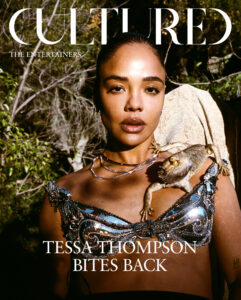
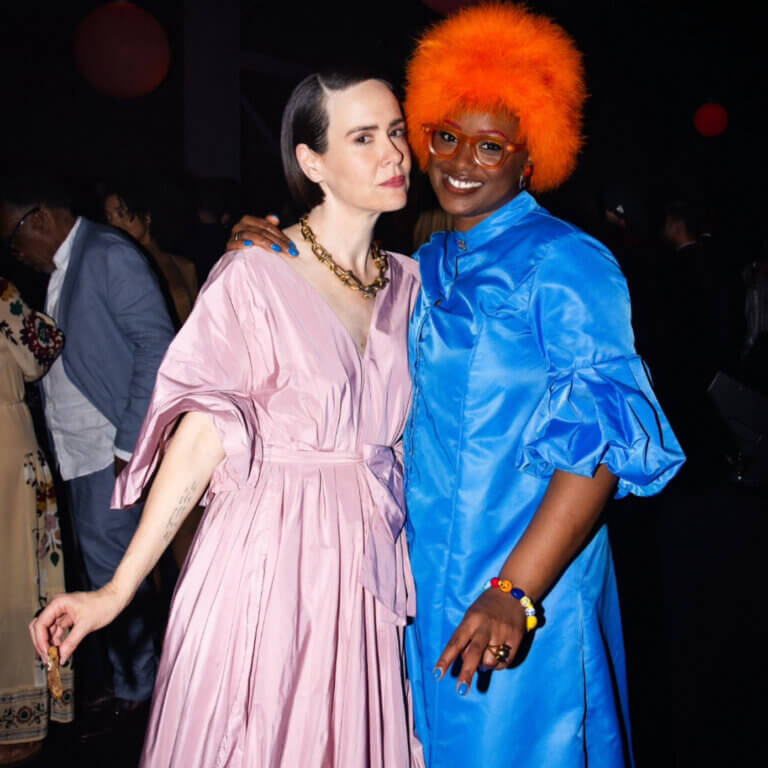
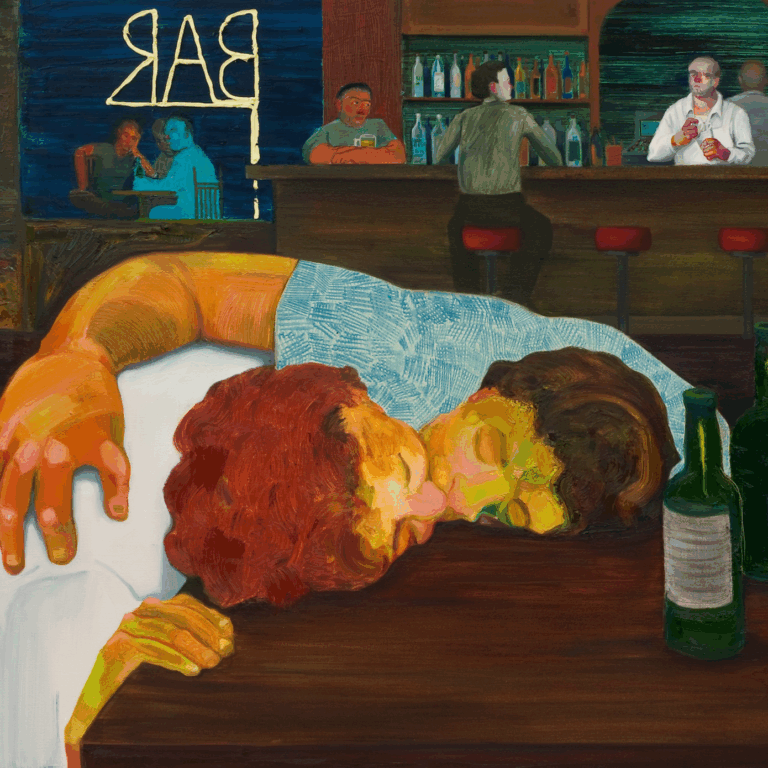
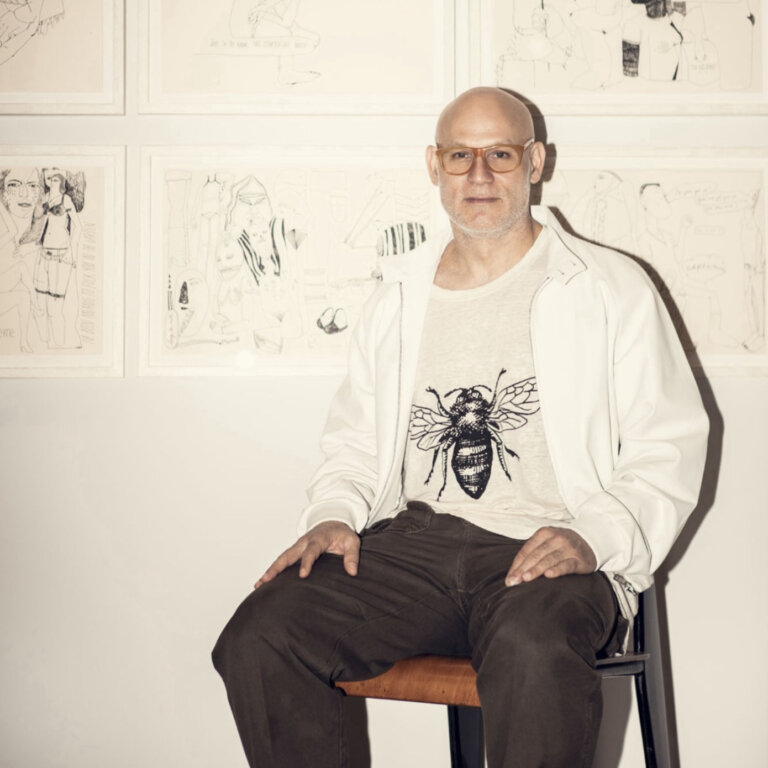




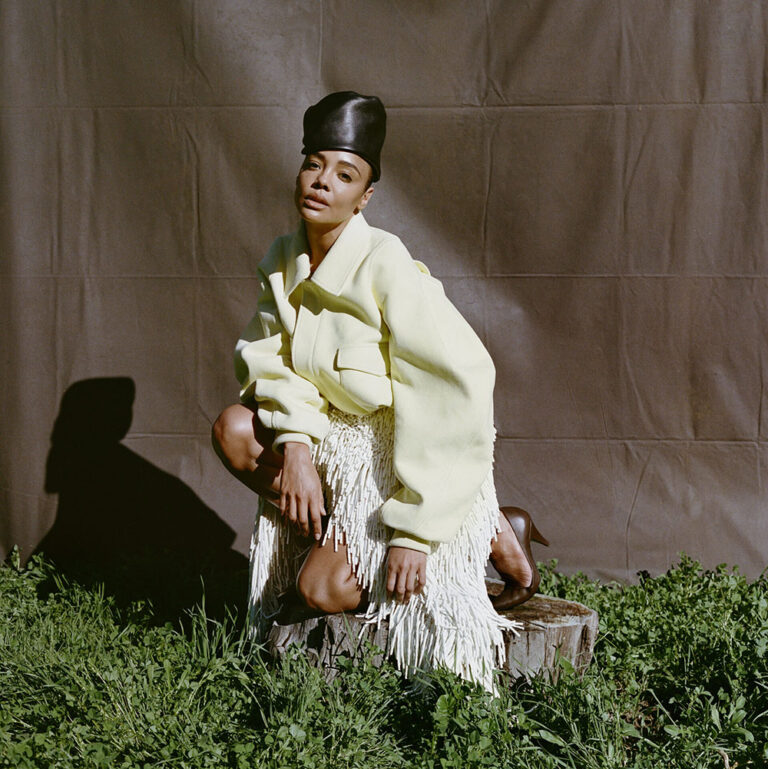

 in your life?
in your life?

